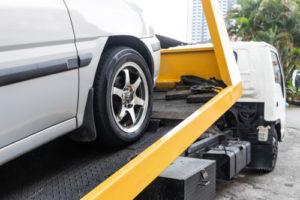
After a trucking accident in Columbus, it is extremely important to seek medical treatment immediately, and then proceed by gathering all of the items and documents necessary to begin a personal injury case on your behalf. A personal injury lawsuit can help you secure the damages to help you recover, and can help highlight possible negligent practices performed by the liable party.
If you want to pursue a personal injury case after a trucking accident then, one of the most important sets of documents you can acquire is a truck driver’s logbook. A driver’s logbook details the duration of their trip, their rest breaks (or lack thereof), as well as a host of other pertinent information.
What’s in a truck driver’s logbook?
Per the requirements set forth by the United States Federal Motor Carrier Safety Administration (FMCSA), a branch of the Department of Transportation, every truck driver must keep written records of the hours that they are driving and on duty, as well as the time and duration of their breaks.
According to the rules, outlined in a guidebook produced by the Ohio State Patrol, “a motor carrier shall not permit or require a driver to drive…for more than 11 cumulative hours following 10 consecutive hours off duty.”
Furthermore, a truck driver must “have 10 consecutive hours off duty before he/she is eligible to drive again.” Additionally, along with the rules regarding driving, truck drivers are “not permitted [to drive] if more than 8 hours have passed since the end of the driver’s last off-duty or sleeper-berth period of at least 30 minutes.”
For a free legal consultation, call (614) 538-1116
How You Can Use a Driver’s Logbook as Evidence
Because of the punishments drivers or motor carriers may face for violating the FMCSA rules, many drivers or carriers attempt to destroy or falsify their logbooks in order to shirk liability for an accident.
If the logbook indicates the driver violated the hours-of-service rules, it may support that he or she was fatigued at the time of the accident. To make sure that you are able to use a driver’s logbook as evidence in your lawsuit then, it is imperative that you have a legal professional draft a spoliation letter on your behalf.
A spoliation letter should include your:
- name;
- the name of the truck driver or carrier;
- the location and date of the crash;
- the parties who were injured or killed in the trucking accident; and
- your demand to have access to the logbook of the driver in question.
Spoliation, or the act of destroying evidence, is considered a tort in the State of Ohio, and presenting the truck driver or carrier with a request for evidence is one of the only ways to ensure that you acquire access to this information. Otherwise, motor carriers may destroy the records after six months.
That being said, some trucking companies will attempt to destroy this type of evidence as soon as possible after an accident, thus it is imperative that you act as quickly as you can to request the information before any such action is taken.
Contact a Legal Professional in Columbus Today
Ultimately, if you or someone you know has been injured or killed in a trucking accident, contact Bressman Law. We will examine the specifics of your case and help you begin filing a claim for compensation and preserve evidence like the trucker’s logs. Call us today at (614) 538-1116.
Call or text (614) 538-1116 or complete a Free Case Evaluation form








